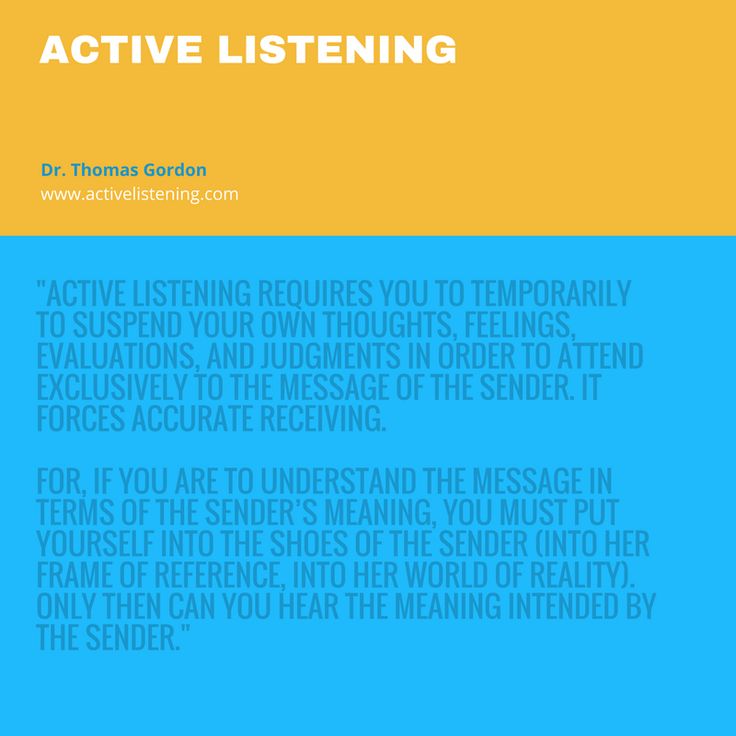
Here are ten fun active listening exercises managers can use to develop their skills: Also, managers who train their employees using active listening exercises become better at actively listening to themselves.Ĭheck out “ Breaking Down the Walls: Understanding 6 Active Listening Barriers.” 10 activities listening exercises for a workplaceĪctive listening is a vital skill for managers to develop, enabling them to understand their team better, increase productivity, and foster positive relationships. A study has found that teaching managers active listening skills improved their ability to support employees with mental health problems. It becomes essential for managers as it helps improve workplace relationships and reduce stress.

And active listening is quite an integral part of communicating effectively.Īs discussed above, there are several benefits that one can enjoy if one practices active listening. As we all know, communication plays a vital role in all spheres of our lives. One such skill is that of actively listening. This also requires individuals to develop several skills to handle everyday interactions and challenges smoothly. A place where they spend most of their time of day. Active listening in the workplaceįor working professionals, their work becomes their second home. By actively listening to others without interrupting or passing judgment, one can better understand their perspective and feel connected to them. The benefits of active listening extend beyond work life and into everyday conversations with family and friends.
Quick active listening exercises professional#
It promotes personal growth and self-awareness by encouraging individuals to reflect on their communication styles and biases.Īctive listening can improve relationships, increase productivity, and promote personal growth, making it a valuable skill in a professional context. Personal Growth: Active listening has been proven to be an effective catalyst for personal development.Conflict Resolution: Active listening is an effective tool for resolving conflicts because it helps to identify and address underlying issues, reducing the potential for misunderstandings and miscommunications.Increased Productivity: Active listening can lead to greater efficiency and productivity by reducing the need for clarification, repetition, and follow-up communication.Strengthened Relationships: Active listening helps to build stronger relationships by fostering mutual trust, respect, and understanding.It allows both parties to feel heard and understood, leading to better communication and fewer misunderstandings. Improved Communication: Active listening helps create a more open and honest dialogue.This helps people develop empathy, attention, and interpersonal skills. Clinical evidence shows it is an effective tool for improving communication skills, building emotional intelligence, and fostering relationships.


The positive benefits of active listening are many and varied. It involves summarizing what the speaker said, expressing empathy for their feelings, and providing respectful and constructive feedback.Ĭheck out “ Why is empathetic listening the key to successful leadership?“ Providing Feedback: This means responding to the speaker’s message with accurate and constructive feedback.Showing Understanding: This means demonstrating that you understand the speaker’s perspective by reflecting on what they are saying, asking clarifying questions, and acknowledging their feelings.It involves actively listening to the speaker’s words, observing their body language, and minimizing distractions. Paying Attention: This means giving the speaker total mental and physical attention.The three principles of active listening are: – In addition, it helps build trust between people and improves communication, benefiting everyone involved. In workplaces, active listening skills are essential for building good relationships between colleagues and creating effective teamwork. 10 activities listening exercises for a workplaceĪctive listening is a soft skill that involves paying attention and understanding what someone is saying without passing judgment.



 0 kommentar(er)
0 kommentar(er)
